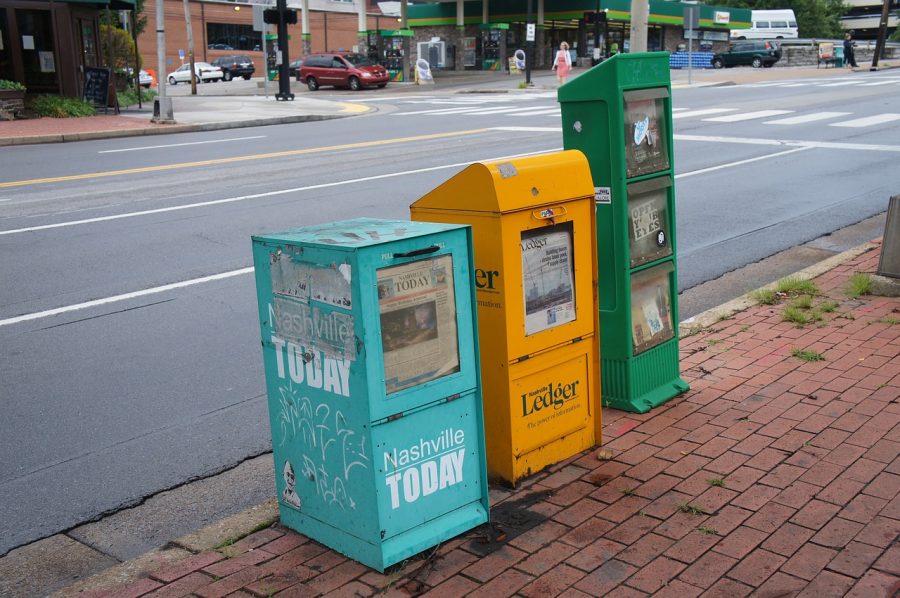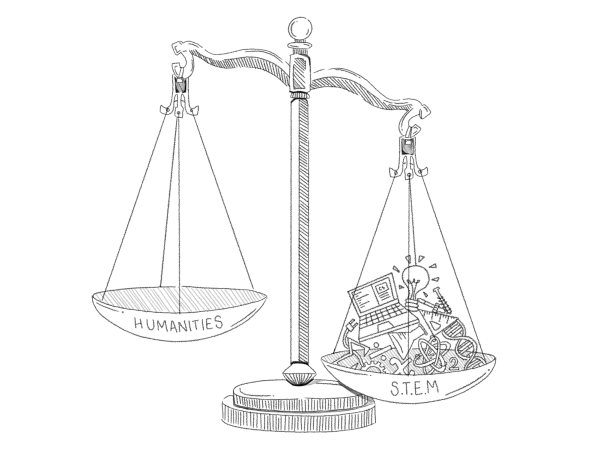To Do During Shelter-in-Place: Subscribe to Your Local Newspaper
Local publications are providing essential information with reporting on changing local policies, local coronavirus metrics, testing locations, the situation at hospitals, and how our institutions and community-members are being affected and responding to the crisis. Creative Commons photo: Akozka on Pixabay.
April 20, 2020
“Among the important steps you should take during this crisis: Wash your hands. Don’t touch your face. And buy a subscription to your local newspaper,” write Steven Waldman and Charles Sennot in The Atlantic. Even as the COVID-19 crisis is demonstrating more than ever the need for quality local journalism, it is posing a new threat to its very existence. As a result, it is vital for our community to rally around our local newspapers during this time to ensure they make it through this crisis.
The current crisis has made especially clear the vital role local newspapers play in our communities. Local publications are providing essential information with reporting on changing local policies, local coronavirus metrics, testing locations, the situation at hospitals, and how our institutions and community-members are being affected and responding to the crisis. But local newspapers aren’t just necessary during times of crisis.
By shining a light on the operations and decisions of our local governments, schools and businesses, local newspapers serve as a check to corruption and misconduct in our institutions. Most of us don’t have time to attend city hall or school board meetings. We need publications to inform us of the decisions being made. Oftentimes, the policies enforced on the local level are the ones that affect us most, and we need the public to understand what is happening so our local leaders continue to report to us.
By supporting our local newspapers, we also fund valuable investigative reporting. As some examples from this year, our local papers have reported on nepotism, mismanagement, and possible election fraud committed by a water company servicing East Palo Alto and Menlo Park. They further uncovered that the Mountain View government had been publishing the public notices on government affairs they are required to disseminate in an obscure legal paper with only 49 subscribers. Local journalists have also conducted in-depth reporting on Stanford’s attempt to expand and why it ultimately failed, and the challenges and successes of charter schools in East Palo Alto. All of these pieces won first or second place awards in their respective categories at the California State Journalism Awards.
As important, in a world where we seem to be increasingly isolated from one another, local newspapers help bring us together. Having your high school sports team featured for a successful season, reading a feature article on your neighbor’s quirky hobby, or learning about the challenges your neighbors face reminds us that we are all members of a vibrant community. Through our local papers, we can celebrate the successes of our community-members and learn how we can better serve each other. By supporting local journalism, we demonstrate that our local communities and the people living in them matter.
Unless more of us subscribe to our local paper, though, we might lose them. The Almanac (which covers Menlo Park, Portola Valley, Woodside and Atherton) and The Mountain View Voice recently suspended their print editions and laid off employees in response to the financial pressure brought by COVID-19. The Palo Alto Weekly significantly reduced their print circulation. Bill Johnson, the publisher of these three papers has offered a plea to our community: “Today’s public health emergency, and the economic devastation that threatens all small businesses, may very well be the final blow that ends local journalism as we know it. […] We are betting our future on you.” Other newspapers that serve members of the Menlo community, such as The San Mateo Daily Journal, have posted similar messages to readers on their websites.
Local newspapers are especially fragile in this crisis because journalism has been in serious decline since the early 2000s. Since 2004, more than 1800 U.S. newspapers, most of them local weeklies, have closed. One reason is decreased advertising revenue. Internet giants such as Facebook and Google have siphoned off newspapers’ advertisers by offering a more targeted and cost-effective way to advertise. From 2007 to 2016, U.S. newspapers’ advertising revenue decreased from $45.4 billion to $18.3 billion.
The second reason is decreasing subscription revenue as readers have turned to free online news including through social media. From 1968 to 2016, paid circulation of U.S. newspapers dropped nearly 50% (from 62.5 million to 34.7 million) even as the population increased by 50%. The combination of these factors has severely damaged the newspaper business. Employment in newsrooms has decreased by 60% since 1990.
The COVID-19 crisis threatens to be the tipping point for local newspapers by drying up their remaining advertisers. The small businesses — real estate agents, restaurants, theaters — that populate the ad pages of local newspapers have pulled their advertisements as their revenue has disappeared. Papers across the country have suffered the consequences. For example, The Portland Mercury, an alternative bi-weekly newspaper, had to suspend their print edition and layed off 10 of their 18 staffers. Papers in Sacramento, Reno, St. Louis, Vermont, Florida and elsewhere have had to make similarly painful decisions.
It takes very little from each of us to help save our local papers. Please consider subscribing and donating to the paper that serves your community. Subscriptions can be as little as $10 monthly — just two Coffeebar lattes! These papers are demonstrating that they care about the communities they serve, most of them removing the paywalls on their websites during this crisis to ensure we get the information we need. It’s time we return the favor.












